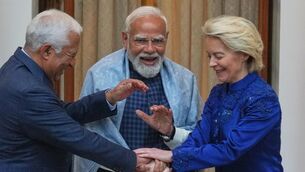Despite its flaws the euro is still worth saving
I have always had a gut instinct that when push would come to shove, the EU political firmament would do the right thing and save the euro despite its many fundamental flaws. Perhaps I have been too generous to that political elite.
European history does show us that when push comes to shove, European politicians do not always do the right thing. Witness two European wars, and the fiasco that developed in the former Yugoslavia. It would take a brave soul to bet on the current political leadership doing the right thing.














